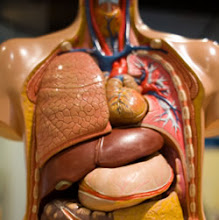While asbestos was once thought to be an incredibly beneficial material, we now know that it causes cancer. Although the primary cancer associated with asbestos is mesothelioma, it can also cause lung, esophageal, gastrointestinal, kidney, and colorectal cancers. Additionally, doctors are now finding links between ovarian cancer and a form of mesothelioma that affects the testes.
Despite evidence pointing to a link between deteriorating health and asbestos from the ancient Greeks and Romans, we continued to use asbestos, with it gaining mass popularity during the Industrial Revolution. Finally, in the late 1950s, doctors and researchers from a hospital in South Africa presented evidence that exposure to asbestos is the main cause of mesothelioma. However, it wasn't until the late 1980s that the U.S. government outlawed asbestos.
Sadly, asbestos had a widespread presence before it was banned. Asbestos was recognized as a wonderful insulating material because it is resistant to heat, flame, chemicals, electricity, and biodegradation. Thus, it was utilized in the construction, automotive, and shipping industry, which helps to explain its occurrence in ceiling tiles, vinyl flooring, insulation, counter tops, brake pads, and gaskets.
However, now we know that asbestos is a carcinogen because it remains lodged in our bodies since we cannot degrade the material. While most cancers associated with asbestos affect the lungs or gastrointestinal system, it can also turn into ovarian cancer or a specific type of mesothelioma that attacks the lining of the testes.
Although there is no definite link yet, studies have shown that women who use talc powder laced with asbestos are three times more likely to develop ovarian cancer than those that do not. The powder must come into contact with the genital region, and the talc must contain the amphibole type of asbestos. Additionally, women who did not use the talc powder but whose husbands did were also 50% more likely to develop ovarian cancer.
Asbestos doesn't just affect women's reproductive systems. A rare form of mesothelioma attacks the lining of the testes. Mesothelioma cancer, as a whole, hurts the different linings of the body, including lungs, abdominal, heart, and even testes. The membrane lining that surrounds the testes is called the tunica vaginalis. When mesothelioma infests this membrane, it can harm the testes to the extent that part of a testicle or even an entire testicle must be removed.
These types of cancer can damage someone's chances to have children, as well as spread and affect other parts of the body. If you or someone you know has suffered from asbestos-related cancers and diseases, you should speak to a lawyer about your rights.
For more information, contact a Williams Kherkher asbestos attorney today.
Joseph Devine Article Source: http://EzineArticles.com/?expert=Joseph_Devine
| |
